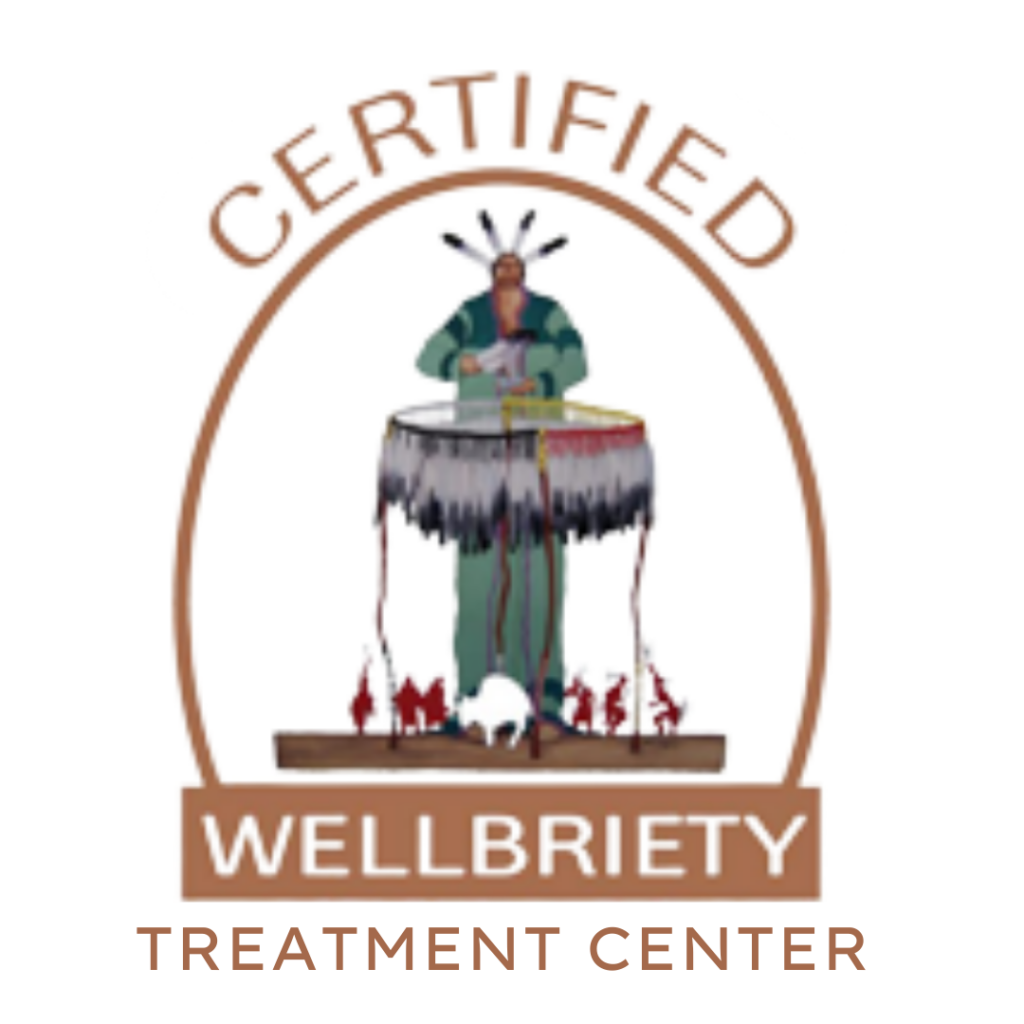Heroin Detox
Heroin detox can be a challenging process that requires a great deal of support and guidance. People who choose to detox from heroin at a quality drug addiction treatment center can gain insight into their substance abuse while learning strategies to overcome their heroin addiction.
Understanding what heroin addiction is, how heroin withdrawal affects the body, and the value of professional help can offer clarity and comfort to those seeking heroin addiction treatment for themselves or a loved one.

What Is Heroin?
Heroin is an illicit opioid drug made from processing morphine, a naturally occurring opiate extracted from opium poppy flowers grown in South America and Asia. This highly addictive drug is commonly smuggled into the U.S. by drug cartels in Mexico and Columbia, impacting the lives of countless people.
Depending on the purity of its contents, heroin comes in a white or brownish powder or a black sticky substance known as “black tar heroin.” Drug dealers often “cut” heroin with other substances such as sugar or powdered milk to stretch their supply. As a result, anyone using the drug is unaware of how much heroin is in each dose, increasing the risk of overdose. Unfortunately, risks of overdose associated with heroin have resulted in a huge death toll, leading to the U.S. opioid overdose epidemic.
What Is Heroin Addiction?
Heroin is an illegal substance that is processed from opium poppy plants and is highly addictive. It works by binding to opioid receptors in the brain and affecting the body in various ways. Heroin has been used for centuries, but it has become increasingly popular in recent years. It is usually found on the black market and can be injected, snorted, or smoked.
Aside from the fact that heroin is illegal and highly addictive, heroin abuse can be fatal. In fact, the likelihood of an overdose or deadly complication due to heroin is more common than most people think. In fact, infections and diseases transmitted through IVs, heart attacks, lung failure, and strokes are all associated with heroin addiction.
If left untreated heroin addiction can result in devastating consequences, leading to serious physical and mental health issues, social struggles, and financial problems. Therefore, it is vital for those abusing heroin to participate in heroin addiction treatment at a drug and alcohol rehab to successfully recover.
If you or someone you know is struggling with heroin abuse, please reach out for help today.
The Dangers of Heroin Abuse
Over three-quarters (75%) of drug deaths in 2021 were opioid-related. Further, from 2020-2021 alone, opioid deaths increased by 15%. The Centers for Disease Control and Prevention (CDC) estimated over 9000 deaths from heroin overdoses in 2021. Opioid users put themselves at risk of overdosing because they can develop physical dependency within a matter of weeks. Once a person has a tolerance to heroin, they begin to experience withdrawal symptoms when they stop using. At this point, the best way to break the cycle of addiction is to undergo heroin detox.
What Is Heroin Withdrawal?
Heroin addiction occurs like with any other habit-forming substance. When a person uses heroin in any form, they feel a euphoric rush that numbs feelings of pain and distress. The strength of the rush and how fast it sets in depends on many factors, but the effects are the same, ranging from tranquility to a mood boost. This is because opioids like heroin or morphine interact with opioid receptors in the brain’s natural reward system, which makes the person feel good.
However, over time that person builds up a tolerance to opioids, so they must take more to achieve the same effect. Heroin withdrawal occurs when the person has gotten so dependent on the drug that they feel sick after periods without it. At this point, quitting is difficult, especially if the person tries to do it on their own. Withdrawal symptoms are uncomfortable, impossible to ignore, and all-consuming.
Symptoms of Heroin Withdrawal
To emphasize, each person will have a different experience of heroin withdrawal depending on a range of factors. Because everyone is different, there’s no map of withdrawal you can expect. However, there are some common short-term and long-term withdrawal symptoms. Short-term withdrawal occurs soon after the last dose when the person starts to crave more. Long-term withdrawal happens further along in the detoxification process as one’s body learns to cope without the drug. In general, some similar short- and long-term heroin detox symptoms are likely to occur.
Short-Term Heroin Withdrawal Symptoms
Short-term withdrawal, also called acute symptoms, spans from one’s last dose throughout the early detoxification stages. Common short-term heroin withdrawal symptoms include:
- Nausea
- Vomiting
- Diarrhea
- Dilated pupils
- Anxiety
- Trouble sleeping
- Muscle aches and pains
- Fast heart rate
- High fever
- Sweating
Side effects are most profound around 2-3 days after one’s last dose. These first stages of withdrawal are when individuals trying to detox alone may relapse. For a successful and safe detox, it’s important to receive help from substance use professionals. The most effective way to undergo heroin detox is in an inpatient facility. There, medical staff will help you set a foundation for recovery.
Long-Term Heroin Withdrawal Symptoms
Once one has passed the acute withdrawal timeline, they’ve conquered the most intense feelings of sickness. Yet, some long-term opioid withdrawal symptoms may continue. Long-term withdrawal, or protracted withdrawal, is when side effects extend after detoxification. These symptoms are often more psychological and behavioral than physical. Long-term heroin withdrawal symptoms often include:
- Anxiety
- Anhedonia
- Depression
- Dysphoria
- Low motivation
- Memory issues
- Trouble focusing
- Insomnia
- Irritability
- Heroin cravings
There’s no set timeline for how long protracted withdrawal symptoms will last, but it could be between months and years. Unfortunately, lingering post-acute withdrawal symptoms (PAWS) can cause people to relapse and even overdose. An estimated 90% of former opioid users struggle with PAWS. The best treatment for withdrawal is learning healthy coping mechanisms and exploring the deeper causes of addiction.
Self-Assessment: Am I Addicted?
How Long Does Heroin Withdrawal Last?
Heroin withdrawal symptoms start quickly after a person’s last dose. Withdrawal symptoms can vary. Every person experiences withdrawal differently depending on a unique set of factors. The following are components of how one may experience withdrawal:
- Genetics
- Length of heroin use
- Intensity of usage
- Combination of drugs taken (polysubstance abuse)
- Physical and mental health
- Degree of opioid dependence
Although symptoms may differ, the timeline for detoxing from heroin follows a common pattern.
Heroin Withdrawal Timeline
The process will be somewhat distinctive to each individual, but there is a general timeline for heroin detox. Opioid detox is broken down into four stages spanning from the last dose to 7+ days later. The four stages are:
- The first 24 hours
- After 24-36 hours
- Days 4-6
- Day 7 and onwards
Common side effects are known to occur within each stage, although these also depend on the person. Individuals can prepare for the rest of their recovery by being knowledgeable about the detox stages.
First 24 Hours
Because heroin is a short-acting drug, withdrawal symptoms begin within several hours after one’s last dose. Acute symptoms often include fast heart rate, anxiety, muscle pain, and restlessness. The first 24 hours of detoxing can feel like a severe flu.
Within 24 to 36 Hours
Unfortunately, the 24-36-hour stage of opioid detox is often the most severe, as withdrawal symptoms intensify and peak. As such, flu-like pain increases, with effects like nausea or vomiting, cramps, diarrhea, and sweating reaching their most intense levels. Symptoms tend to ease up after this point.
Days 4 through 6
As the body continues to detox and release opioids from the system, symptoms continue but begin to taper off. People generally have reduced nausea and muscle pain, but may still feel weakened, sore, and tired.
A Week and Beyond
Now that the worst of the detoxification process is complete, people can experience a range of long-term symptoms. With the drug out of their system, effects going forward may be more psychological than physical. Known as post-acute withdrawal symptoms, or PAWS, people may experience cravings, depression, anxiety, poor sleep, or poor focus for weeks.
Have any questions?
Heroin Detox
To safely recover from heroin addiction, people must undergo detoxification. Heroin detox programs are the first step in treatment for heroin addiction and other opioid use disorders (OUD). If you’ve developed a dependency on opioids, your brain and body are reliant on the drug, giving it control over you. Withdrawal is uncomfortable and difficult but getting released from heroin’s hold over your life is well worth it. Above all, you don’t need to undergo detoxification on your own.
Trying to detox from heroin alone is dangerous and likely to lead to relapse. Medically supervised withdrawal at a detox center assists people during the most difficult phases of their detox. Clinical staff monitor guests and ensure they receive the necessary interventions. They also prescribe medication when needed. Medically-assisted detox leads to greater long-term treatment success and relapse prevention by supporting recovery.
Drugs Used for Heroin Detox
Medication is used during heroin detox to treat the side effects that come with withdrawal. Medication can provide powerful assistance during the detoxification process by alleviating symptoms and discomfort. Guests who detox in an inpatient center receive specialized withdrawal care. Along with medical treatment, medical practitioners use standard management services for opioid withdrawal. These depend on the severity of symptoms.
In the event of mild opioid withdrawal, certain actions are often needed. For example, because sweating, diarrhea, and vomiting are common during acute withdrawal, clinicians aim to prevent dehydration. To counteract fluid loss, they’ll increase guest’s water intake. Additionally, medical staff use vitamins and supplements to restore guests to healthy nutrition levels.
On the other hand, there are also standard management services for more moderate to severe withdrawal symptoms. For instance, clinicians may recommend specific medication for recovery from opioids’ effects. Clonidine, buprenorphine, and methadone are all recommended for reducing physical discomforts like:
- Anxiety
- Abdominal cramps
- Vomiting
- Diarrhea
- Chills and fever
- Sweating
- Tremors
- Insomnia
Such medications can make a huge difference in the effectiveness of heroin detox. Miserable withdrawal side effects are a key reason why people fall back into the heroin cycle. Fortunately, prescription medication is available to those receiving detox care in an inpatient center.
Medication-Assisted Treatment for Heroin Withdrawal
In some cases, medication-assisted treatment (MAT) is prescribed to guests for withdrawal symptoms. Medication is proven to aid in detoxification but unfortunately, of the 2.5 million people with OUD in 2021, just 22% of them were prescribed MAT.
The FDA has approved certain medications for the treatment of opioid dependence and detoxification. Not only do MAT services alleviate discomfort during the hardest part of withdrawal, but they also increase sobriety rates.
FDA-approved prescriptions for opioid use disorder (MOUD) include:
- Naltrexone
Naltrexone is an opioid blocker that is also used for treating alcohol addiction. By blocking opioid receptors, it reduces lingering cravings and decreases dependency on the drug.
- Buprenorphine
Buprenorphine is a long-term replacement for heroin that reduces cravings and nausea. This long-acting opioid lessens withdrawal symptoms by mildly activating opioid receptors. Individuals experience less discomfort during detoxification and recovery.
- Methadone
Methadone is a long-acting opioid agonist that helps alleviate withdrawal effects. By blocking the effect of opioids, it helps prevent relapse throughout the recovery process.
During heroin detox, our substance abuse professionals recommend medication assistance on a case-by-case basis. To do so, our clinicians examine the nature and severity of each person’s addiction, while also considering the individual’s medical history and other health factors to determine the necessity of treatment.
Our MAT program can assist in the treatment of guests detoxing from heroin by lessening withdrawal symptoms and cravings. Likewise, MOUD can assist in relapse prevention by disincentivizing the allure of heroin by blocking the euphoric effects of opioids. In addition to medication, our MAT services incorporate behavioral therapies and drug addiction counseling into our guest’s treatment plans. In doing so, we provide a holistic approach to heroin detox and addiction treatment that supports each guest as they continue their healing journey in the weeks and months to come.
At Royal Life Centers, we provide medication-assisted treatment (MAT) beyond the first days of detoxification.
Continuing Care in Residential Treatment
After you’ve completed inpatient detoxification, you’re well on your recovery journey. Heroin is a potent opioid with long-term withdrawal effects, so maintaining treatment after detox is the best way to prevent relapse. Counseling services are an integral part of treatment because they explore the deeper causes behind addiction. In therapy at Royal, you and your personal care team will build a foundation for lasting recovery.
You’ll learn healthy coping skills for dealing with life’s challenges, like triggers and cravings. You’ll uncover the underlying causes of your substance abuse. By creating relapse prevention plans, you’ll avoid setbacks and overdose. With a team around you who want you to thrive, you’ll never feel alone in the recovery process!
Aftercare and Long-Term Recovery
Being that they have a supportive community around them, our guests benefit from treatment at the aftercare and outpatient levels. They learn skills and tactics that they can implement at any point in their journey. Royal Life Centers has different levels of care available to guests:
- Partial Hospitalization Program (PHP)
- Intensive Outpatient Program (IOP)
- Outpatient Program (OP)
- Sober Living
Our continuum programs aim to help you achieve care while fostering greater self-reliance. After heroin detoxification at The Haven, guests can transfer to our aftercare facility, Sound Recovery, where they build upon their initial work. Throughout the various levels of care, guests work with their case managers to learn basic life skills like job readiness, financial planning, and emotional management. Concurrently, guests hone relapse prevention to avoid the risk of overdose. They also take part in individual and group therapies.
We offer traditional therapies as well as complementary therapies like equine-assisted therapy, adventure therapy, movement therapy, and music therapy. Guests interested in the creative side of recovery can use our in-house recording studio, Sober Studios. Through recovery maintenance, guests remain in close contact with medical professionals and have a recovery community supporting them.
As a result, guests at Royal still face difficult situations during their recovery, but they put into practice healthy real-life coping skills when faced with triggers and cravings. When the time comes for them to leave the facility’s walls, they’re prepared to face obstacles.
Are you looking for help with addiction? Let us support you on the path to lasting recovery
Heroin Detox and Treatment at Royal Life Centers
At Royal Life Centers, our mission is to provide the best comprehensive care to everyone who enters our center. We believe in treating people as people, not as their addictions, struggles, or mental health. It’s why we use human-centric language and refer to each individual as a guest. We follow a holistic treatment model that emphasizes the guest’s mental, physical, and spiritual recovery. Addiction may be the most challenging experience of your life, but it’s not a label you have to carry anymore. Our integrative approach to wellness uses evidence-based therapies and treatment. We offer alumni program services, a family therapy program, and dual diagnosis options for drug detox and aftercare.
If you’re ready to start living a fulfilling sober life, we’d love to help you get settled into a personalized treatment plan at one of our Centers.
Find a Heroin Detox Near Me in Washington State
To offer guests the best care in the most accessible way, we have many recovery centers spread around Washington. The Haven and Sound Recovery are part of Royal’s nationwide addiction treatment programs and centers.
The Haven is a detoxification and residential inpatient center that can help you end alcohol and drug dependence. Sound Recovery is a continuing care option for those who’ve completed detox and are ready to move through the levels of drug and alcohol rehab.
In Washington, we offer the following detoxification and residential facilities:
We have connected aftercare and outpatient treatment centers around Washington state. Guests can move there once they’ve finished their detox. They will still be supported by an individual care team and an encouraging community!
Our aftercare facilities in Washington are:
When you’re ready to conquer your addiction and start the journey to a fulfilling life of sobriety, we’re ready to walk that road with you. Because We Care, we are here for you 24/7 by contact form or phone. We can help with insurance verification and answer any questions you may have about the detox programs at our detox center. Call our addiction treatment center at 888-568-5998 today and learn more about our treatment programs!
Looking for Heroin Detox Services?
If you or someone you love is struggling with heroin addiction, please reach out to us to find out more about how our heroin detox services can help. We work with most private insurance policies and we have affordable self-pay rates if you do not have insurance. Give us a call and we will figure out the best treatment plan for you or your loved one.
Because We Care.

Would you like more information?
If you or someone you know has a substance use disorder, we hope you’ll begin your journey with us at Royal Life Centers.
If you would like to learn more Other Resources
Change your life with one call.
We can help.


















